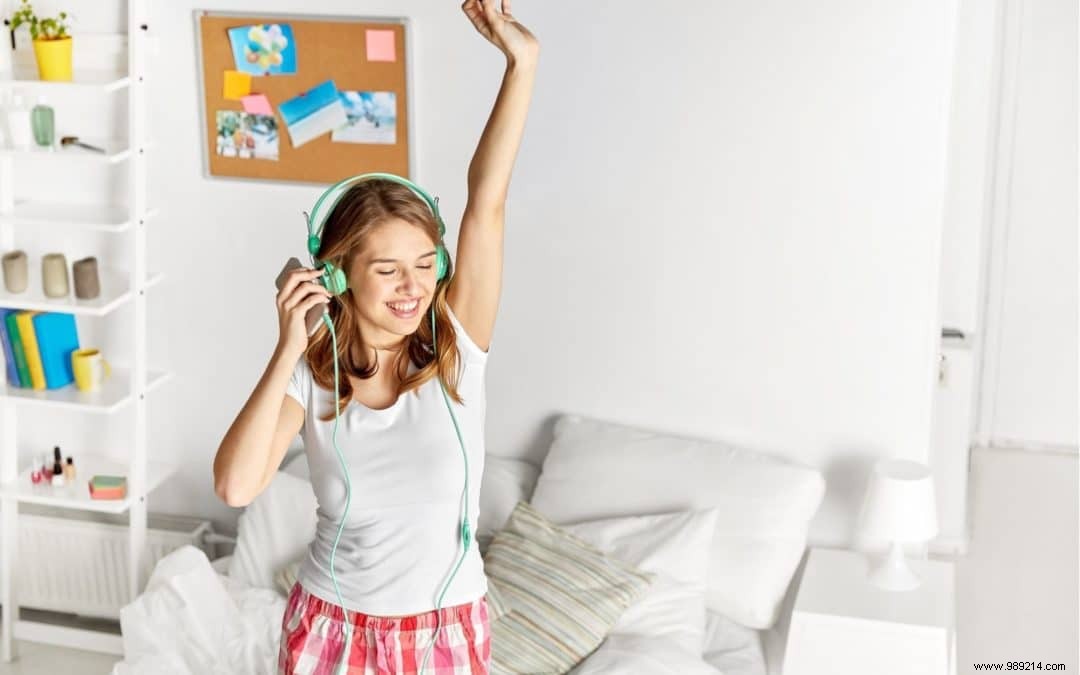
The music festival opens the summer festivities as well as the times of idleness allowing you to listen to music, to "chill with it". The reflex today is to listen to it mainly with headphones (65% of 15-17 year olds) but listening with mobile speakers is gaining ground. Music is good, it is a source of personal and shared pleasure. These emotions will depend on your ears, whose mechanisms are fragile. 4 tips to preserve your ears and enjoy moments of music so that the music is good.
Headphones, earphones, bone conduction headphones…sound remains a quantity of energy that puts pressure on the mechanisms of hearing. Of course, the listening comfort will not be the same whether you use basic headphones or noise reduction headphones. Outside noise pollution is then reduced and you will have less need to turn up the volume. Headphones with noise reduction also offer a more immersive sound and have the advantage of putting it further away, the shells being placed on the pavilions of the ear and not directly in the ear canal. Bone conduction devices use the property of sound propagation via the vibrations of the bones of the skull. They leave the ear canals in the open air with the disadvantage of letting in external noise pollution. The choice of listening equipment will mainly depend on personal comfort criteria.
Because if we center the definition of "good sound" on the needs of the ear, it is above all a question of respecting the natural balance of the mechanisms of the ear. At the heart of this issue, the proper reception of sound information by the brain. Sound is a quantity of physical energy that puts pressure on the mechanisms of hearing. From 80 dB for 8 hours of exposure, the ear is in danger. However, the smartphone can reach 100 dB of power! At this level, in theory, listening should not exceed 7 to 10 minutes. However, listening to music that you like at low volume is certainly less of a danger of hearing problems but still contributes to "tiring" the ear. Of course, if the duration and the volume become substantial then the danger increases. For the music to be good, a good practice is to modulate its listening modes:for example, a little headphone, a little speaker. For the experts of the National Day of Hearing association, the helmet is 1 hour a day at half volume.
In festivals and concerts, it is a question of protecting the hearing mechanisms. If your eyes have lids, the ears have no protection. Since the dawn of time, they have been a sensory radar at the service of our survival. If you do not understand the speech of your friends who accompany you 1 meter away from them then the sound is too loud for your ears. Protections are then necessary:foam plugs, silicone filter plugs or even custom-made ones. But it indicates that it is necessary to put a greater distance between you and the speakers.
The ears need to blow to regain their balance. Sound pressure puts the sensory cells of the ear under pressure. Only a recovery time can recover. The recovery time must be equivalent to the sound exposure time. For this reason, it is advisable to enjoy a good night's sleep without headphones in your ears! But integrating recovery times during the day can be a lifesaver in terms of fitness and vitality. So in festivals do not hesitate to move away from the scenes from time to time to let the ears "de-stress".
Several indicators can alert you to realize imbalances:difficulties understanding speech during the day, fatigue at the end of the day, loss of concentration or even cottony effect, buzzing, whistling after sound exposure. So rest time is urgent. If these phenomena do not disappear after 8 hours of rest, it is advisable to consult. Be careful, the exhibition does not create pain at the time, it is after that it happens. Let's keep our ears happy by listening differently.